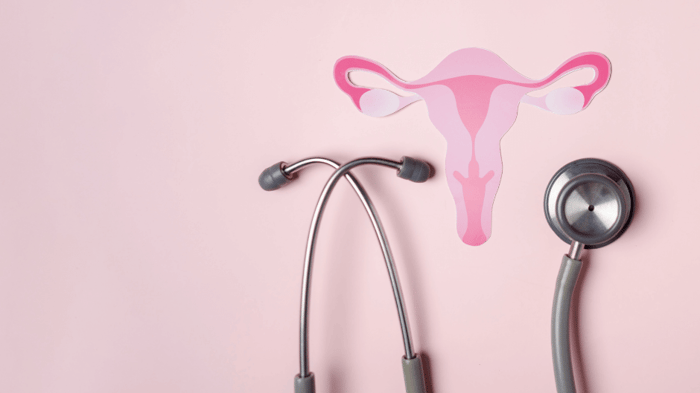Table of Contents
- What Causes Vaginal Dryness After Menopause?
- Is Vaginal Dryness Permanent After Menopause?
- How Long Does Vaginal Dryness Last After Menopause?
- Symptoms Beyond Dryness
- Natural Ways to Relieve Vaginal Dryness
- Modern Natural Support: She Juicy
- Medical Options for Persistent Vaginal Dryness
- Emotional Impact: Why Dryness is More Than Physical
- FAQs About Vaginal Dryness After Menopause
- Why Choose Natural Over Synthetic Solutions?
- Lifestyle Tips for Lasting Comfort
- Vaginal Dryness Doesn’t Have to Be Forever
Menopause marks a natural transition in a woman’s life, but for many, it also brings uncomfortable surprises. One of the most common yet least talked-about issues is vaginal dryness. This condition can make intimacy painful, cause irritation, and chip away at confidence. Many women ask the same pressing question: Is vaginal dryness after menopause permanent?
The good news is that while vaginal dryness is a long-term symptom for some women, it is not necessarily permanent. With the right understanding, lifestyle choices, and natural support, you can restore comfort and confidence. In this blog, we’ll dive into what causes vaginal dryness, how long it can last, and the most effective ways to address it — naturally, safely, and confidently.
What Causes Vaginal Dryness After Menopause?
Vaginal dryness is primarily caused by a drop in estrogen levels after menopause. Estrogen plays a critical role in maintaining vaginal elasticity, blood flow, and natural lubrication. When estrogen declines, several changes occur:
Thinning of the vaginal walls (atrophy).
Reduced natural lubrication.
Increased pH levels that can affect vaginal health.
But hormones aren’t the only factor. Stress, medications, dehydration, and lack of sexual activity can also contribute.
Is Vaginal Dryness Permanent After Menopause?
The short answer is: not necessarily. Vaginal dryness can be persistent, but it doesn’t have to be permanent. Here’s why:
Your body adapts. Some women find that symptoms ease with time as their body reaches a new hormonal balance.
Treatment works. From natural supplements like She Juicy™ to lifestyle adjustments and medical options, there are many ways to support vaginal health.
Consistency is key. With ongoing care, most women can significantly reduce or even eliminate dryness symptoms.
How Long Does Vaginal Dryness Last After Menopause?
There’s no one-size-fits-all answer. For some, dryness begins during perimenopause and lasts a few years. For others, it continues indefinitely without treatment. Clinical studies show that nearly 50% of postmenopausal women experience dryness, and many report that symptoms worsen over time if not addressed.
The takeaway: vaginal dryness can last as long as menopause itself — but it doesn’t have to define your future.
Symptoms Beyond Dryness
Vaginal dryness is rarely an isolated issue. For many women, it comes hand in hand with a range of other uncomfortable — and sometimes painful — symptoms that can impact daily life and intimacy. Recognizing these signs early is essential because they often point to underlying changes in vaginal tissue and overall pelvic health.
Burning or itching sensations: A lack of natural lubrication can cause friction, leading to irritation, inflammation, and a constant feeling of discomfort.
Pain during intercourse (dyspareunia): Without adequate moisture, intimacy can feel more like pain than pleasure, often discouraging women from sexual activity altogether.
Urinary urgency or recurrent infections: When the vaginal environment becomes thinner and drier, it’s more vulnerable to changes in pH and bacterial balance, which can trigger bladder irritation or repeated urinary tract infections.
Microtears in vaginal tissue: Fragile vaginal walls can develop tiny tears during daily activities or intercourse, causing spotting, soreness, and increasing the risk of infection.
These symptoms don’t just affect physical health — they can influence confidence, relationships, and overall emotional well-being. The good news is that addressing vaginal dryness early with consistent care and supportive solutions can help prevent these complications, restore comfort, and protect long-term vaginal health.
Natural Ways to Relieve Vaginal Dryness
1. Stay Hydrated
Water is the foundation of lubrication. Dehydration can worsen dryness, so aim for at least 8 glasses a day.
2. Balanced Diet
Omega-3 fatty acids, found in salmon, flaxseed, and walnuts, support mucous membranes. Soy-based foods may also help due to phytoestrogens.
3. Regular Sexual Activity
Yes, intimacy itself helps. Sexual activity increases blood flow to vaginal tissues, stimulating natural lubrication.
4. Gentle Products
Avoid harsh soaps, scented wipes, and douches. Opt for pH-balanced cleansers to protect vaginal health.
Modern Natural Support: She Juicy
One of the most exciting natural solutions for vaginal dryness is She Juicy by Flower Power®.
Plant-Based Formula: 100% vegan, hormone-free, and cruelty-free.
Key Ingredient:Slippery Elm Bark, rich in mucilage and antioxidants, supports vaginal mucosa for natural lubrication.
Doctor Trusted: Safe for use during menopause or even after a hysterectomy.
Gentle on the Stomach: Unlike other supplements, She Juicy is formulated to avoid digestive discomfort.
Women report feeling improvements within days to weeks, with consistent use making all the difference.
Medical Options for Persistent Vaginal Dryness
If natural remedies aren’t enough, medical treatments can provide additional support:
Topical Estrogen Creams or Rings. Localized hormones restore elasticity and lubrication.
Non-Hormonal Moisturizers. Over-the-counter solutions for daily comfort.
Laser Therapy. A modern option that stimulates collagen production in vaginal tissue.
Always consult a healthcare professional before starting new treatments.
Emotional Impact: Why Dryness is More Than Physical
Vaginal dryness isn’t just about discomfort — it affects intimacy, confidence, and mental health. Many women avoid sexual relationships, feel embarrassed, or lose interest in intimacy altogether. Breaking the silence around this issue is essential. Remember: there’s no shame in talking about vaginal health.
At Flower Power®, we believe vulnerability is a superpower, and open conversations about women’s health help break stigma.
FAQs About Vaginal Dryness After Menopause
Is vaginal dryness inevitable after menopause?
Not necessarily. While about half of postmenopausal women experience dryness, it’s not a universal symptom. Genetics, lifestyle, hydration, diet, and even sexual activity all play a role. Some women transition through menopause with minimal changes, while others experience dryness as a persistent issue. The important thing to remember is that if you do develop dryness, it’s common, normal, and treatable.
Can vaginal dryness go away on its own?
For some women, the body may adapt over time, and symptoms may ease. However, in most cases, vaginal dryness tends to persist or even worsen without support, because estrogen levels stay low after menopause. That’s why many women turn to consistent strategies — like supplements, moisturizers, or localized treatments — to restore comfort and improve long-term vaginal health.
Is estrogen the only solution?
Absolutely not. While estrogen-based therapies can be effective, they are not the only option and are not suitable for everyone. Natural, hormone-free alternatives can support the vaginal mucosa, encourage natural lubrication, and provide relief without introducing hormones into the body. This makes them especially valuable for women who cannot or do not want to use estrogen.
How quickly can I expect results with She Juicy?
Most women start noticing improvements within the first week, often around 3–4 days of consistent use. The key is to allow the formula to build up in your system and to stay consistent with daily intake. Over time, She Juicy™ helps maintain optimal vaginal moisture, so the benefits aren’t just temporary — they become part of your new normal.
Can I combine She Juicy with other treatments or medications?
In most cases, yes. She Juicy is gentle and can complement other treatments, such as moisturizers, lubricants, or even prescribed therapies. However, as with any supplement, it’s always best to talk with your healthcare provider before combining it with medications, especially if you have existing health conditions.
Will vaginal dryness always come back if I stop treatment?
That depends on your body. If vaginal dryness is related to hormonal changes after menopause, symptoms may return once you stop supporting your vaginal health. That’s why many women choose to incorporate long-term, gentle solutions like She Juicy into their wellness routine. It’s not about masking the problem — it’s about giving your body ongoing support to feel balanced and comfortable.
Why Choose Natural Over Synthetic Solutions?
Hormonal therapies can be effective, but they’re not suitable for everyone. Some women prefer natural solutions due to concerns about side effects, safety, or long-term health risks. Products like She Juicy offer a plant-based, gentle, and effective alternative.
Lifestyle Tips for Lasting Comfort
Practice pelvic floor exercises to improve circulation.
Include vitamin-rich foods in your diet (A, E, and D).
Use breathable cotton underwear to prevent irritation.
Stay active — regular movement supports overall circulation and vaginal health.
Vaginal Dryness Doesn’t Have to Be Forever
So, is vaginal dryness after menopause permanent? Not if you take action. While the symptom can be long-lasting, it’s far from a life sentence. With natural support, consistent care, and a willingness to talk openly about it, you can reclaim your comfort, intimacy, and confidence.
At Flower Power®, we’re here to remind you: dryness doesn’t define you. You deserve to feel juicy, vibrant, and fully yourself again.










